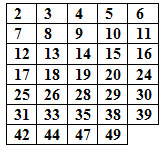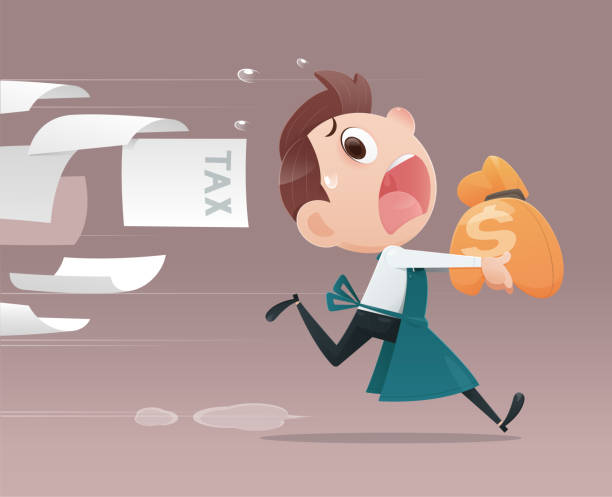![]() Download a PDF of this Legislative Memo including sources and citations here.
Download a PDF of this Legislative Memo including sources and citations here.
*Note: Several supermajority for taxes amendments have been introduced. The analysis below also applies to SJR 8211, 8212 and HJR 4213, 4214 and 4215.
Key Findings
- Voters have approved supermajority for taxes ballot measures on six occasions (1993, 1998, 2007, 2010, 2012 and 2015). In addition, voters approved a revenue limit in 1979 which required a supermajority vote of lawmakers to exceed the limit (Initiative 62).
- Reporting from the Secretary of State’s Office shows voters in 69% of Washington’s legislative districts (34 of 49 districts) approved Initiative 1366.
- According to a December 2015 poll, 65 percent of voters want the legislature to send voters a proposed constitutional amendment to implement the tax limitation policy if the state supreme court strikes down voter-approved Initiative 1366.
- Seventeen states currently have some form of supermajority vote requirement for tax increases.
- There are currently more than 20 supermajority vote requirements in the state’s constitution.
- Allowing the people to vote on a constitutional amendment, like the ones proposed by SJR 8208 and SJR 8209, would represent the will of the public and would help settle this seemingly endless debate once and for all.
Introduction
In February 2013, the state supreme court in a 6-3 ruling overturned the voter-approved requirement that proposed tax increases must receive a supermajority vote of the legislature or voter approval at the ballot to be enacted. In the past, when the court invalidated a law passed by the people, the legislature sought to implement directly what the people want. Recent examples include Initiative 695, to reduce car tab costs and Initiative 747, to limit yearly property tax increases.
In response to the court’s ruling and the voters’ approval of Initiative 1366 last November (the sixth time voters have approved a supermajority requirement for tax increases), Senator Pam Roach has introduced two proposed constitutional amendments, SJR 8208 and SJR 8209. Both proposals would allow voters, for the seventh time, to consider this taxpayer protection policy and, if they choose, to place the requirement into the state’s constitution.
Past tax limitation
Tax limitation ballot measures consistently receive voter support. Approval of Initiative 1366 last November represented the sixth time since 1993 voters have approved the policy of requiring a supermajority vote in the legislature to pass tax increases. Voters did the same in 1993, 1998, 2007, 2010 and 2012. In addition, voters approved a revenue limit in 1979 which required a supermajority vote of lawmakers to exceed the limit (Initiative 62).
Opponents of the people’s approval of Initiative 1366, however, are asking the state’s courts to rule the measure unconstitutional. A trial date has been scheduled for January 19th in King County Superior Court.
Voters want lawmakers to act on constitutional amendment
According to a new statewide poll, a large majority of voters want lawmakers to send to the 2016 ballot a constitutional amendment requiring a supermajority vote in the legislature to pass tax increases.
Sixty percent of respondents said they support the supermajority vote requirement before the legislature can raise taxes. An even larger number, 65 percent, said they want the legislature to send voters a proposed constitutional amendment to implement the tax limitation policy if the state supreme court strikes down voter-approved Initiative 1366.
Here are the December 2015 poll questions voters were asked (conducted by Elway Research, INC.):
- “These next questions are about a proposal to require a supermajority of two thirds or three-fifths of the legislature to pass a tax increase. In your opinion, should there be requirement for a supermajority vote in the legislature to raise taxes?”
YES: 60%
NO: 30%
UNDECIDED: 10%
- “Last month, voters again passed an initiative to require a supermajority vote in the legislature to raise taxes. Now there is a lawsuit trying to get the initiative overturned. If the state supreme court rules that the voter-approved initiative is unconstitutional, what should the legislature do?”
Do nothing and let the Supreme Court decision stand: 27%
Give voters a chance to vote on whether to make the supermajority tax limitation rule part of the state constitution: 65%
Don’t Know/No Answer: 8%
The response to the second poll question expresses the central concern of voters. Having passed Initiative 1366 and knowing it may be struck down the the court, they want lawmakers to provide them the chance the make the popular tax limitation requirement part of the constitution.
Tax limitation in other states
Requiring a supermajority vote in the legislature to increase taxes is not unique to Washington. Seventeen states currently have some form of supermajority vote requirement for tax increases. These 17 states include several other Western states, including California, Arizona and neighboring Oregon.
Existing supermajority requirements in the state constitution
Supermajority requirements are not unusual in Washington’s own constitution. There are currently more than 20 supermajority vote requirements in the state’s constitution. Several of these provisions have been part of the Washington constitution since statehood. The most recent supermajority restriction was added by lawmakers, and confirmed by voters, in 2007. The added provision requires a three-fifths legislative vote to spend funds from the budget-stabilization account.
The one component currently missing from the state constitution’s fiscal supermajority requirements is additional protection for state taxpayers on tax increases. Ultimately, the legislature should allow the voters to harmonize the existing budget supermajority vote requirements with a tax-increase restriction, to complement the current higher threshold required for local tax-levy increases, incur ring debt and spending one-time savings.
Based on the numerous supermajority vote restrictions currently in Washington’s constitution, letting voters consider a constitutional supermajority restriction to raise tax would not be embracing undemocratic principles. Instead, it would be consistent with existing constitutional precedents for requiring higher vote thresholds for certain government actions.
SJR 8208 and SJR 8209
Although the state supreme court struck down the state’s decades-old statutory supermajority vote to increase taxes requirement in 2013, the justices were clear that they were not ruling on the wisdom of the policy itself. Instead, they said a constitutional amendment was necessary.
“Our holding is not a judgment on the wisdom of requiring a supermajority for passage of tax legislation. Such judgment is left to the legislative branch of our government. Should the people and the legislature still wish to require a supermajority vote, they should do so through a constitutional amendment.”
SJR 8208 and SJR 8209, if passed by the legislature, would allow the people to make this decision. Along with requiring a supermajority vote to pass tax increases, the proposal would allow the legislature, with a simple majority vote, to refer a tax increase to voters for approval. The text of these proposed amendments reflect the provisions of past initiatives the people have already approved more than once.
Popular vote for Initiative 1366 by legislative district
According to reporting by the Secretary of State’s Office, voters in 69% of Washington’s legislative districts (34 of 49 districts) approved Initiative 1366. This level of popular support is significant because lawmakers representing at least 33 legislative districts must act to refer a proposed constitutional amendment to voters.
Legislative Districts that supported I-1366
Assuming lawmakers in these 34 legislative districts from across the state reflect the views of their constituents on this issue, there should be enough legislative support to end decades of debate about whether to require a supermajority vote in the legislature to raise taxes by placing a proposed constitutional amendment on the 2016 ballot.
Conclusion
Washington Policy Center has long recommended a supermajority vote requirement protection for taxpayers. For over 20 years the voters have consistently said they want their lawmakers to reach a broad bipartisan consensus before raising taxes, or to allow voters to make the decision directly. Although the supreme court invalidated this taxpayer protection policy as ordinary law, its ruling has not dampened the enthusiasm of voters, who have consistently and repeatedly demanded this commonsense tax-limitation requirement.
Allowing the people to vote on a constitutional amendment, like the ones proposed by SJR 8208 and SJR 8209, would represent the will of the public and would help settle this seemingly endless debate once and for all.
**Nothing here should be construed as an attempt to aid or hinder the passage of any legislation before any legislative body.





